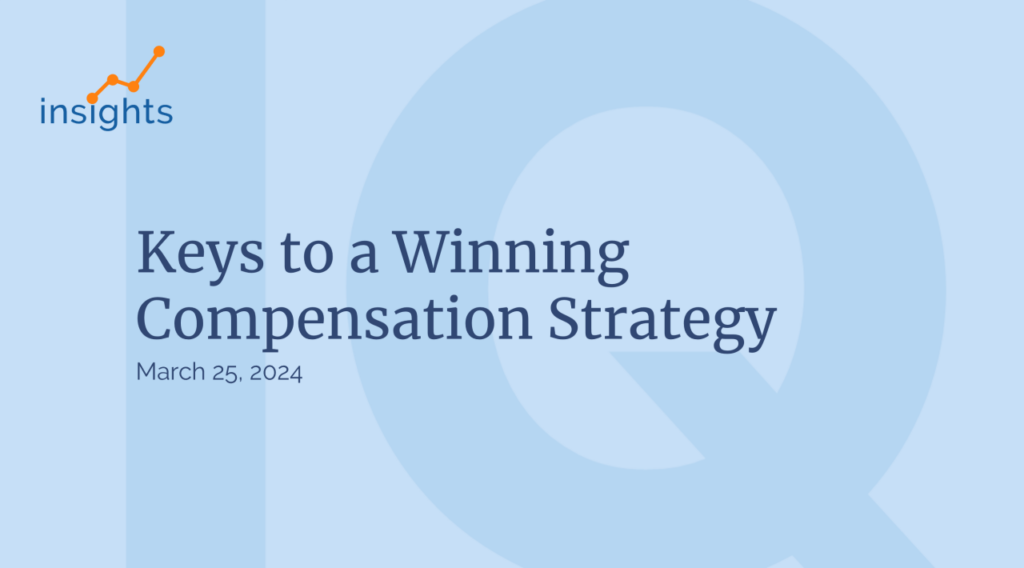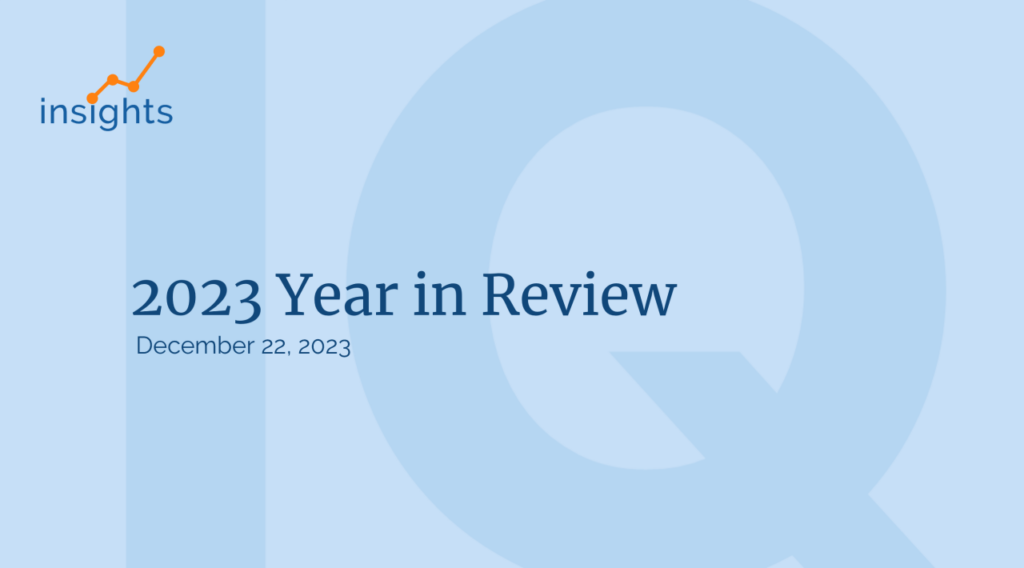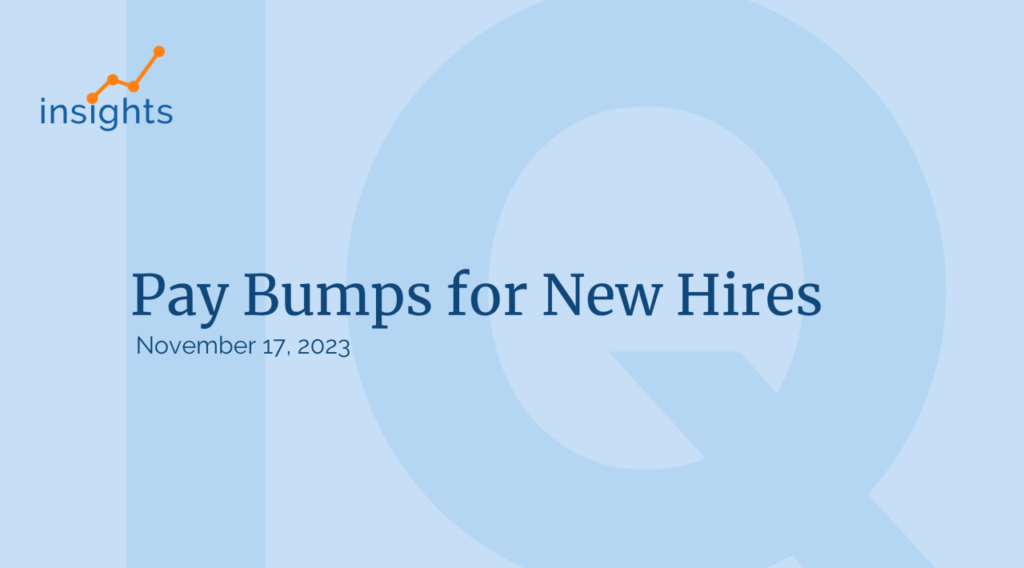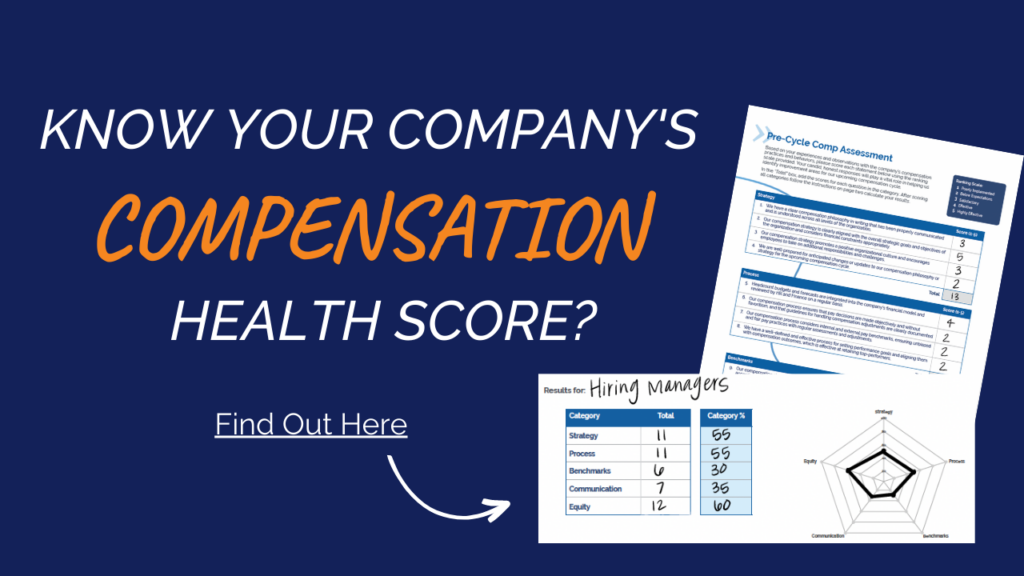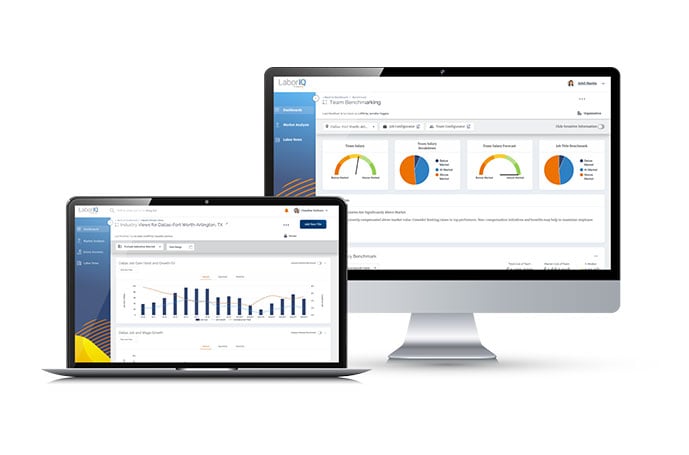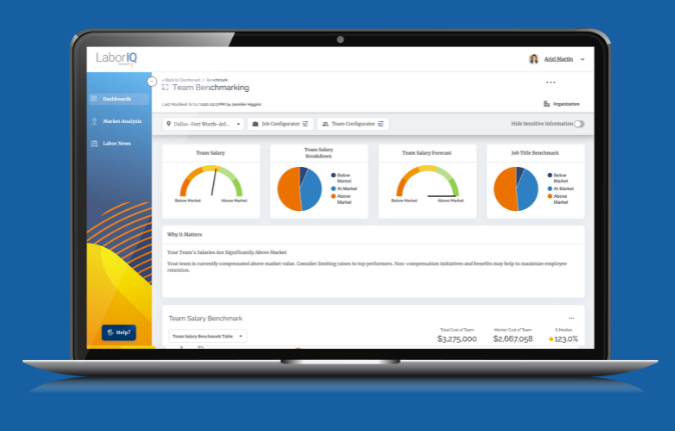Compensation can be a sensitive topic in the workplace, but it’s an important conversation nonetheless. Not least because staff retention and the likelihood of attracting talent are often inextricably linked to your payment structure.
Considering just 65% of people are satisfied with their compensation and 49% of U.S. adults feel they have to switch companies to gain significant raises, ensuring fair pay is vital for reducing turnover.
But how can you know that you’re offering a fair salary?
Cue compensation benchmarking.

Compensation benchmarking is the analytics process that enables you to clearly determine acceptable salary ranges for your company’s job roles. Based on these results, you can create a sensible payment structure and offer employees full pay transparency.
However, several types of data are required for successful salary benchmarking. So, with that said, this article will provide a handy compensation benchmarking template to help get you started.
Let’s get going!
Why is Compensation Benchmarking Important?
Compensation benchmarking is a necessary process that should form part of your annual compensation review to ensure you’re offering a fair pay structure.
When done well, compensation benchmarking should achieve the following:
- Internal equity – this ensures that when an employee looks at their own salary compared to a colleague’s, they’ll understand why there are differences between their pay. When employees notice they’re being paid less for the same work as someone else, discontent is a frequent result. Internal equity helps to nip this issue in the bud.
- External equity – the employee perceives their pay to be fair compared to what other competing companies are offering. If employees feel they’re getting a raw deal compared to the going market rate, they will likely leave your company for better pay elsewhere. External equity will help stop this from happening.
On top of this, compensation benchmarking unlocks several benefits:
- It raises employee morale and motivation because transparent compensation benchmarks ensure guidelines for pay progression, which can encourage employees to try to reach the next pay grade.
- It takes the guesswork out of new offers and promotions, saving you time in the long run.
- You can know with certainty that you’re offering competitive compensation, which is more likely to attract top talent.
A Compensation Benchmarking Template
Compensation benchmarking aims to compare jobs internal to your company with those of your industry’s competitors. The aim is to determine the average market rate by matching your job descriptions and pay to external job descriptions and salary data.
Compensation benchmarking usually isn’t a single number but rather a salary range. At the low end of this range, you have the Base Pay. This is the minimum pay an employee should receive to be compensated fairly. This is the clean rate of compensation your employee receives in exchange for their services.
The Base Pay is calculated as an hourly or annual salary and should consider the following factors:
- Job title and role.
- Daily responsibilities.
- How many people the role might manage.
- Education.
- Years of experience.
- Skills and credentials.
- Working hours.
On top of this, there’s Variable Pay. This is the pay increase an employee earns when they reach certain milestones.
For example:
- Additional years of experience.
- Time worked at the company.
- Hitting performance milestones.
- Completing special training.
- Taking on additional responsibilities.
…and so on.
On top of this, an employee’s compensation might include other components, such as:
- Health insurance.
- Life insurance.
- Disability insurance.
- Flexible schedules.
- Long-term incentives like stocks.
- Other perks like mental health benefits, family discounts, childcare, sports memberships, etc.
Depending on your compensation philosophy, your pay range might further be affected by the employees’ age and the role’s significance to your company.
In light of that, during the compensation planning phase, establish a hierarchy of jobs in your business according to which positions are most vital to your daily operations and deserve the most compensation.
Once you’ve collected the information above, you can benchmark your current staff salary against the average market range.
Comparing the requirements for Base Pay will give you the minimum in your range. In contrast, comparing job descriptions with upper-end credentials will present figures for the higher end of the spectrum.
The Importance of Using the Right Compensation Benchmarking Data Samples
Where you obtain your data matters as your compensation benchmark will only be as valuable as the data you collect. For example, you must look primarily at competing companies.
These should be:
- Based in your region. Salaries vary significantly between different states and might reduce your reports’ accuracy.
- In the same or a very similar industry.
- A similar size to your own company.
- Feature similar job roles. Don’t focus on job title alone, as other companies may define tasks differently. Look instead at the job description to find a good match.
There are several ways to obtain market compensation data. One way is to look at online resources such as LinkedIn Salary or Glassdoor, where employees can report how much they earn. These databases present salary ranges for specific jobs.
Alternatively, you can purchase surveys from research companies. If you opt to go this route, ensure the companies included in those surveys are a good match.
Use Salary Benchmarking Software for Accurate Compensation Benchmarking
The final way to obtain accurate compensation data is to use a compensation benchmarking tool. This salary benchmarking software automatically selects the most relevant compensation data to your job roles, location and industry to simplify the compensation benchmarking process.



